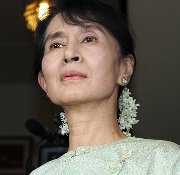Christian and Jewish communities to reclaim state-confiscated properties.
By Barbara G. Baker
ISTANBUL, August 30 (Compass Direct News) – The Turkish government made a historic U-turn in state policy this past weekend, issuing an official decree inviting Turkey’s Christian and Jewish communities to reclaim their long-confiscated religious properties.
Saturday’s (Aug. 27) decree comes 75 years after the Turkish government seized hundreds of lands and buildings owned by its Greek, Armenian, Syriac and Jewish communities.
Turkish Prime Minister Recep Tayyip Erdogan announced the surprise decision on Sunday evening (Aug. 28) in Istanbul, addressing a large gathering of Istanbul’s non-Muslim religious leaders representing 161 minority foundations. Invited as the honored guest for an iftar(breaking the fast) meal near the end of the Muslim month of Ramadan, Erdogan declared, “The times when citizens in our country were oppressed for their beliefs, their ethnic heritage or the way they dressed is over.”
Acknowledging past injustices inflicted on those of different faith groups, he vowed, “Those days are over. In our country, no citizen is superior to another.”
Seated next to the prime minister at the dinner, Ecumenical Patriarch Bartholomew of the Greek Orthodox Church told the press afterwards that the new decree represented “the restoration of an injustice.”
In a deliberate clarification the next day, Turkish Foreign Minister Ahmet Davutoglu emphasized that the government’s formal decision was “not a gesture toward minorities, but the return of the rights of legally equal citizens.”
The landmark decree is a significant step toward eliminating decades of unfair practices imposed by the Turkish state against its non-Muslim citizens.
Within hours of the surprise announcement, the boards of Turkey’s minority religious foundations in Istanbul were scrambling to review the status of their
confiscated immovable properties. They must apply within the next 12 months to the General Foundations Board to recover each individual property.
Their former holdings include schools, churches, cemeteries, stores, hospitals, orphanages, houses, apartment buildings and factories that were seized by the Turkish state and re-registered as public or foundation properties. A number were later sold to third parties.
Previous changes in Turkish legislation enacted in 2003 and again in 2008 took only limited steps to correct a 1936 Declaration which had officially registered an incomplete list of minority properties. A further ruling in 1974 had prohibited non-Muslim communities from acquiring new property.
The new decree states that owners of properties sold by the state to third parties will be reimbursed at market value. According to Radikal newspaper, the Ministry of Finance will determine the amount of compensation for property that had been sold to third parties, who will not be required to relinquish these lands or buildings back to their original owners.
Significant Step to EU
The return of these extensive properties to their rightful owners has been a key demand of the European Union (EU), to which Turkey is applying for full membership.
The unexpected government decree came after rising pressures from the European Court of Human Rights (ECHR), which has slapped heavy fines on Turkey in recent years for failing to return these seized properties to their Christian and Jewish owners. Although the ECHR has declared the expropriations a violation of both local property rights and international law, Turkish nationalists had for decades blocked any legal changes.
During July, both the EU and United States congressional leaders had upped their rhetoric regarding the long unresolved issues of religious freedom for Turkey’s non-Muslim citizens. In a statement on July 13, EU Enlargement Commissioner Stefan Fule cited a number of legislative issues on religious freedom that Turkey had not yet implemented: lack of legal personality, restrictions on the training of clergy, compulsory Islamic education, religious affiliation on identity cards, and property ownership.
“Missionaries are widely perceived as a threat to the integrity of the country and to the Muslim religion,” Fule added, observing that the dialogue launched by the Turkish authorities with non-Muslim religious communities “has yet to produce tangible results.”
That same month, Ankara reacted strongly to a measure passed by the Foreign Affairs Committee of the U.S. House of Representatives calling for Turkey to “return stolen Armenian and other Christian churches to their rightful owners.” Still pending approval by both the House and Senate, the amendment was attached to the State Department’s Authorization Act for 2012.
In an EU statement yesterday, Fule called the decree “positive and conducive to the respect of freedom of religion in practice.” He cautioned, however, that the EU Commission would “monitor closely the implementation of the new legislation, in contact with both the Turkish authorities and the non-Muslim religious communities.”
Ironically, the Istanbul offices of the Secretariat General for EU Affairs are situated in a former grade school building of the Greek Orthodox Ayios Fokas Church in Ortakoy. A case to reclaim this property, formerly owned by the church’s Mektepler Foundation, is still before the ECHR.
The minority properties expected to be returned in Istanbul include more than 50 large cemeteries; several properties of the Jewish community in Kandilli, on the Asian side of the Bosphorus; and a number of buildings owned by both the Surp Pirgic Armenian Hospital Foundation and the Balikli Greek Hospital Foundation.
END
**********
Copyright 2011 Compass Direct News

